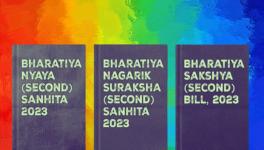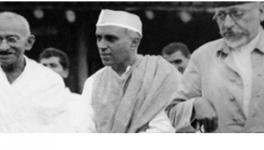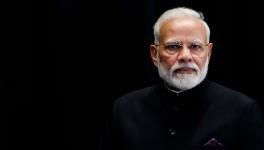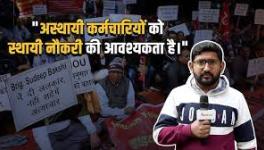How Online Education Deviates from Vision of Constitution
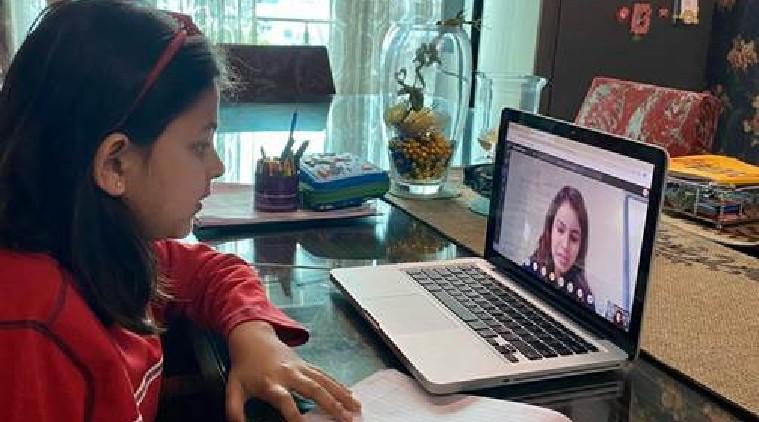
Image Courtesy: Microsoft
A random shift to the online mode of education is emerging as a new normal in the Indian education system. At a time when the nation is battling with the Covid-19 pandemic, universities are busy celebrating the implementation of this new normal. There is an increasing sense of anxiety and confusion amongst those who are responsible for implementing it: students, teachers and the educational institutions are struggling to come to terms with it. Yet, the education bureaucracy—specifically the Ministry and the University Grants Commission—have been issuing circulars one after the other for its quick deadline-based implementation.
Several merits of the online mode are being highlighted in this process. Not only this, online education via the internet is being seen as a panacea for almost all the identified challenges in our education system, ranging from teacher absenteeism, student dropout, challenges in completing syllabus, and so on. Online education is being presented as a medium that would promote more transparency and accountability, as everything can be monitored on the internet. An obsession with dates is visible in this process, despite the context of the pandemic-generated crisis looming large on the psychological and socio-economic conditions of the stakeholders. Courses of all kinds are considered to have been “taught” if they have been “completed” on a certain fixed deadline. It is with this logic that online education is being promoted on a large scale. With the Corona crisis in the backdrop, such radical changes are being brought about in the education system that are dismissive of the very essence and objectives of education.
Initially, the promotion of online education began as a short-term arrangement with the rationale offered that an “alternative” system of teaching and learning was needed in prevailing circumstances. It was argued that online interactions would continue the dialogue between teachers and students, and thereby the routine aspects of formal learning would continue uninterrupted. In addition, it was said that this could also prevent the probable loss of an academic year if the lockdown continues for long.
However, now this paradigm seems to be changing. Moving away from a makeshift arrangement of solving a temporary problem caused by the lockdown (which surely has its own complexities), the government now seeks to implement online education on a large scale as a long-term policy for higher education. If online education soon replaces face-to-face classroom pedagogy, it should not come as a surprise. For this reason, it needs to be seen as a fundamental institutional change, which is not isolated but follows many other recent experiments in the field of education.
A lot has already been written about the technological issues and how successful or not online education can be in Indian conditions. Here, we attempt to look into a wider question i.e. how appropriate online education is as a medium of education. While implementing online education, the meaning of education has been misplaced with increasing obsession with a set of exercise or series of tasks, each of them to be completed between two set dates, which then culminates in a qualification (or what we call degrees). For instance, if the BA degree is to be completed in three years, starting from July in one year to the July of a following year, and all educational activities must be completed in this period. This would include all activities from reading to teaching to examination.
But in this endeavour to meet deadlines, it will be forgotten that education does not mean only securing a BA or BSc degree. A student’s socialisation with the world is the core of the whole process of education. This socialisation is a process in itself, wherein a student leaves the familiar/comfort zones and protected spaces of home/family/village/city and connects as an individual to the wider surroundings, its other individuals, communities and institutions. The main objective of this process is to develop the student into a sensitive social being.
The process of socialisation has three major dimensions: the first, is access to a particular place of learning, an institution which is represented by, at first, its building or a campus. Second, dialogue with the teacher and third, interactions and dialogue with peers or classmates. An introduction to these three dimensions and the interactions therein initiates an individual into a subset of society within the broader social world.
Every student’s access to this mini-society or microcosm, fostering relationships within them, and inculcating fresh values, is integral to the idea of education. The educational institution therefore provides the basic framework to navigate a common or shared society beyond its own boundary. In the process of getting educated, students from different cultures learn to share space and time with each other, all meeting each other on a general principle of equality. In this sense, within the concept of “centres of learning” are embedded the Indian Constitution’s principles of right to education, equality and justice. In a complex society like ours face-to-face mode of education is a medium to inculcate these values amongst future citizens.
The ongoing effort to promote online education tends to take education as a techno-mechanical activity with a drive to make the teaching-learning material easily available and accessible. Yes, material can be made available online, offline, in printed form, as handwritten notes, through theatre, film, or even puppet shows. But the question of availability of education, or access to education, is broader than all these supply-side interventions! Education is inextricably related to the building of a society based on democratic values. The mode in which it is available is deeply linked with questions of access, and therefore also of democratisation and representation. Access to educational institutions, especially public learning centres, is pivotal to education.
If education is a learning exercise for students to participate in everyday social life with dignity, for the rest of their lives, then an educational institution is also a model or subset of the wider society that exists beyond its campus. In other words, the availability of education is a question of a student’s participation in public spaces and in the institutions of a society, as a dignified human being, and not just about his or her being able to access online study material.
It is in this sense that the online education model is an anti-democratic model. It will not only hamper the process of sensitisation but would also reinforce the pre-existing social prejudices in the students’ mind. Online education will thus congeal the fluid process of social change. The visions and perceptions that are established in young minds as they inhabit the limited world of family and immediate neighbourhood, and nothing beyond it, will reinforce conventional positions on questions related to women, the weaker sections, and so on. It will ossify pre-existing beliefs about co-workers, and reinforce conservative world-views rather than create a knowledge-seeking one. In other words, online education would create self-seeking individuals instead of socially sensitive human beings.
A direct result of the online education system would be to undo the gains that Indian society has made so far by making education a right of the younger generation. In fact, implementing online education on a grand scale will only destroy all that has been achieved on the path to equality.
Even in the Indian knowledge traditions education has been seen as a community endeavour and not as an individualised pursuit. Most of them (including Buddhist, Jain and Vedic texts or the Upanishads and Sufi traditions) emphasise this aspect of learning.
While the Indian Constitution guarantees equality and justice as a means to end untouchability, at another level the process of framing these rights with all citizens in mind was also a way to make democratic institutions more egalitarian. Both these processes sought to create physical spaces in the real world that are open to all classes, communities and individuals. That is, the relationship between the individual and the community was given crucial importance. Taking away of classroom-based teaching and substituting it with an individualised virtual world drastically alters these objectives of the Constitution.
The lessons that an individual learns by living, eating and spending time with people who belong to different and diverse backgrounds are not replicable in the online teaching-learning mode moderated by the technological interface. In fact, it further locks them into a walled space all their own. From a life of the mind, they are being dragged into a form of solitary exercise in which the possibilities of mental development and social acclimatisation are minimised. In online mode, it would be extremely difficult to broaden the horizon of individuals, one of the crucial aspects of education, the way it is possible in the face-to-face interactive classroom mode of teaching.
It follows then that the question of education system is not really a question of technology alone, nor is it only about the availability of phone and internet facility. In fact, this is a question about the constitutional and social ethics related to education, the significance of which has been left far behind in the changing priorities of education policy.
Sudhir Kumar Suthar is an assistant professor at the Center for Political Studies, JNU, and Shailza Singh is an assistant professor at the Department of Political Science, Bharti College, University of Delhi. The views are personal.
Get the latest reports & analysis with people's perspective on Protests, movements & deep analytical videos, discussions of the current affairs in your Telegram app. Subscribe to NewsClick's Telegram channel & get Real-Time updates on stories, as they get published on our website.















